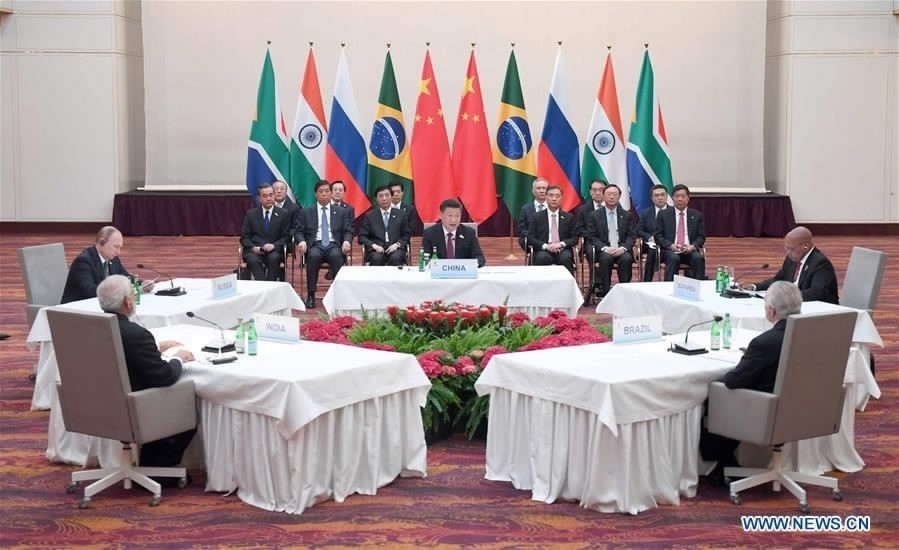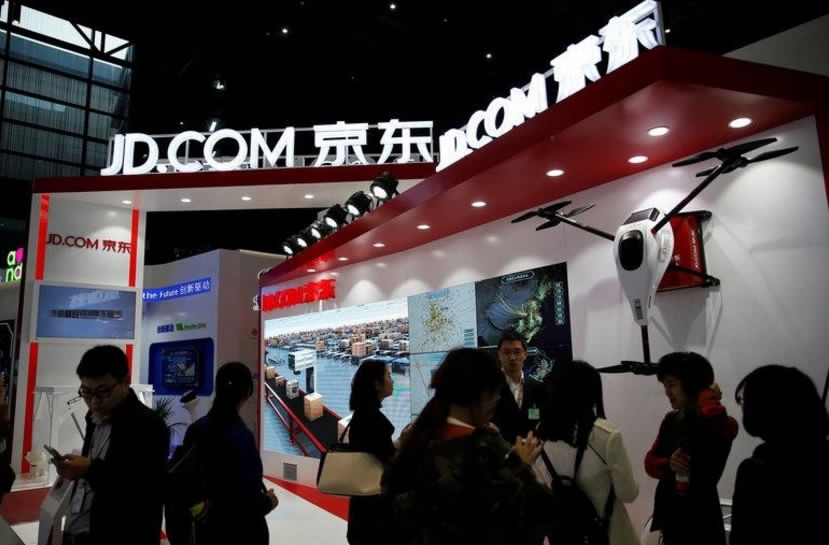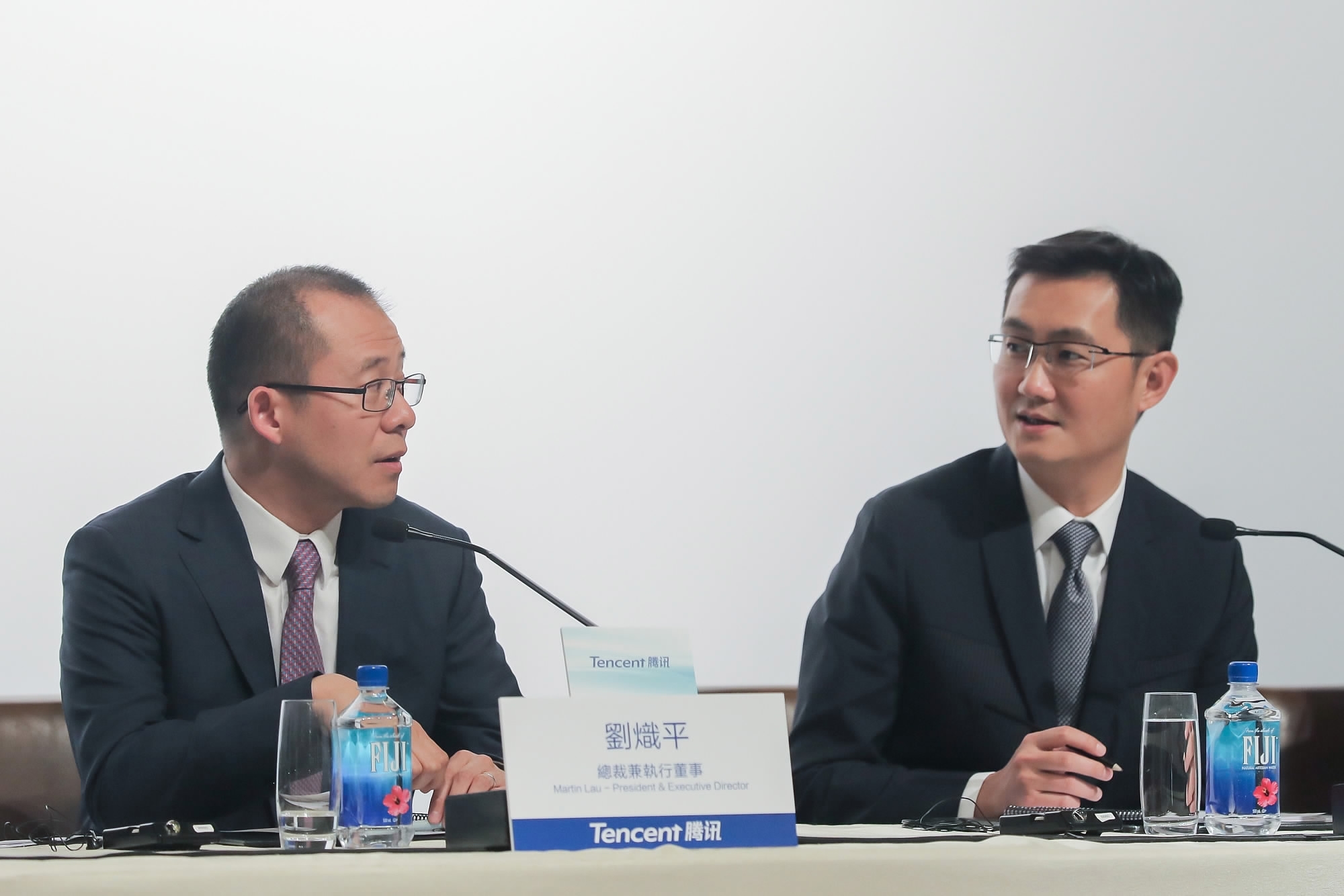
Opinions
15:08, 02-Sep-2017
Opinion: India and China should enhance e-commerce cooperation
By Rabi Sankar Bosu from China.org.cn

It is no exaggeration to say that cross-border e-commerce has been expanding at a remarkable pace in China in recent years, thanks to its higher standard of living combined with a greater exposure to, and knowledge of, foreign products and of course, convenience of online retail.
Indeed, the size and growth of the market make every entrepreneur's mouth water.
Undoubtedly, China will become the world's largest market for buying and selling products online by 2020, with the total value of commodity sold by e-retailers to overseas consumers being likely to reach a whopping US$994 billion, according to an Alibaba and Accenture prediction.

Chinese President Xi Jinping presides over an informal BRICS leaders' meeting in Hamburg, Germany, July 7, 2017. /Xinhua Photo
Chinese President Xi Jinping presides over an informal BRICS leaders' meeting in Hamburg, Germany, July 7, 2017. /Xinhua Photo
In 2016, China eclipsed the US to become the world's largest retail market with total sales of 4.88 trillion US dollars (compared to 4.823 trillion US dollars in the US). Cross-border e-commerce is becoming an important way to develop foreign trade and to promote the Belt and Road Initiative.
During the opening meeting of the fifth session of China's 12th National People's Congress (NPC) on March 5, Premier Li Keqiang stressed the government would promote liberalization and facilitation of international trade and investment, further encouraging cross-border e-commerce.
Since 2015, the government has issued several policies to encourage the growth of e-commerce imports by reducing logistics frictions, streamlining customs clearance and simplifying tax regulations.
Currently, China has 13 pilot zones for cross-border e-commerce where business is conducted on a "bonded import" or "direct purchase import" basis. More than 20 cities are undertaking e-commerce exports. At least 12 new cross-border e-commerce business parks have been built and have so far attracted about 330 enterprises.
Today, BRICS (Brazil, Russia, India, China, and South Africa) countries are playing a growing role in the global economy. They are among the fastest growing as well as among the largest emerging markets economies today.

A sign of China's e-commerce company JD.com is seen at CES (Consumer Electronics Show) Asia 2016 in Shanghai, on May 12, 2016. /Reuters Photo
A sign of China's e-commerce company JD.com is seen at CES (Consumer Electronics Show) Asia 2016 in Shanghai, on May 12, 2016. /Reuters Photo
Currently, the five account for a total nominal GDP of approximately US$16.039 trillion. Their territories are home to some 3 billion inhabitants.
It is apparent that cross-border e-commerce is playing an increasingly important role in internationalization within each member state.
The 7th Meeting of the BRICS Trade Ministers was held on August 1-2, 2017 in Shanghai, under the chairmanship of Commerce Minister Zhong Shan. Strengthening e-commerce cooperation was one of the eight major points of consensus.
The event was one of the supporting activities of the 9th Annual Summit of BRICS to be held in the eastern Chinese port city of Xiamen from September 3 to 5.
A joint statement at the end of the meeting sought strong intra-BRICS cooperation in e-commerce. The ministers approved a BRICS E-commerce Cooperation Initiative and a BRICS working group on e-commerce will be set up to raise connectivity and trade facilitation to a higher level.
It is also encouraging to see that BRICS trade ministers agreed to oppose protectionism and safeguard the multilateral trade system. The five countries have the chance to boost trade, promote industrial upgrading, create jobs and help developing countries as well as small and medium-sized companies to integrate into the global value chain.

Tencent Holdings President Martin Lau (L) and CEO Ma Huateng (R). /VCG Photo
Tencent Holdings President Martin Lau (L) and CEO Ma Huateng (R). /VCG Photo
E-commerce cooperation is developing fast among all five BRICS countries. In the first half of 2017, China's imports from the other four members exceeded US$70 billion, 33.6 percent higher than the same period of last year. According to Ministry of Commerce, China will import more than US$8 trillion of products in the next five years, offering huge opportunities for BRICS countries.
According to a survey report on China's CBEC published in the China Daily on February 16, more than 15 percent of the Chinese population purchased goods from abroad worth 85.8 billion US dollar in 2016. Chinese consumers are now enjoying Brazilian pine nuts, Russian candy and Indian handicrafts with just one click of a mouse.
India, with a 300 million strong middle class hungry for a variety of world class goods and services, is an ideal market to conduct e-commerce cooperation with China. A total of 70 percent of goods sold on India's e-commerce platforms are imported from China, which provides the "basis for cooperation," although the supply end from China is not yet convenient enough for Indian consumers on websites.
Chinese investors, including Alibaba, Tencent, Tiens Group are emerging as major e-commerce players in India. Chinese mobile phone brands, such as Lenovo, Xiaomi, Vivo and Oppo are booming; Xiaomi is now the second highest selling smartphone in India.

Indian troops trespassed into Chinese territory on June 18. /MOFA Photo
Indian troops trespassed into Chinese territory on June 18. /MOFA Photo
Optimism is somewhat dampened, however, by the recent call to boycott Chinese-made products. It's unfortunate that India initiated 12 investigations against Chinese products in the first half of this year, a world record in regard to China.
Hopefully, India and China, despite some ongoing frictions in their bilateral relationship, will work together in maximizing the BRICS e-commerce opportunities and reach more reciprocal deals by deepening economic and trade cooperation.
(This piece was originally published on China.org.cn. The author is the secretary of New Horizon Radio Listeners' Club, West Bengal, India. The article reflects the author's opinion, and not necessarily the views of CGTN.)
Source(s): China.org.cn

SITEMAP
Copyright © 2018 CGTN. Beijing ICP prepared NO.16065310-3
Copyright © 2018 CGTN. Beijing ICP prepared NO.16065310-3